General election: The big winners and losers overnight
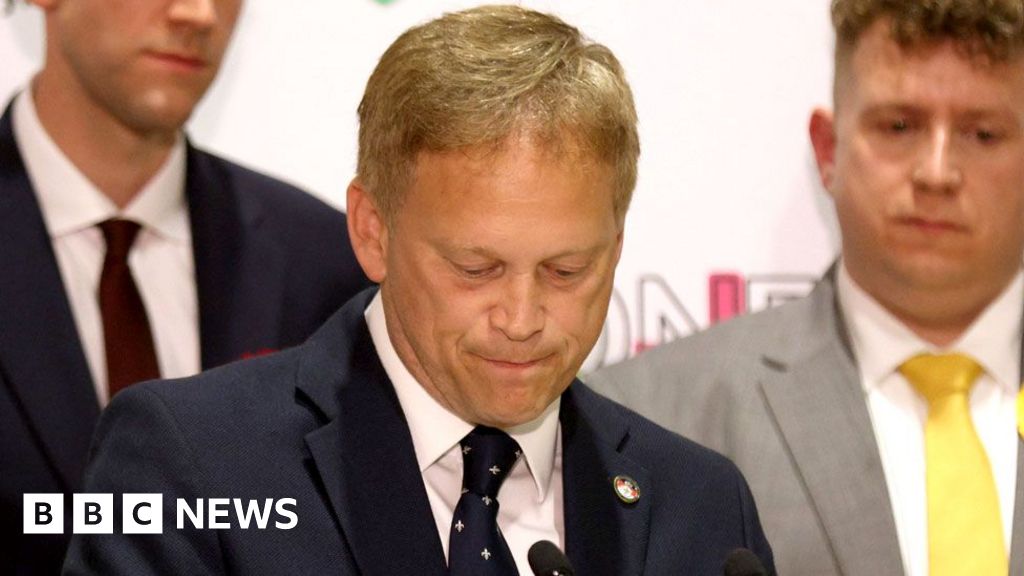
By Sean Seddon, BBC News
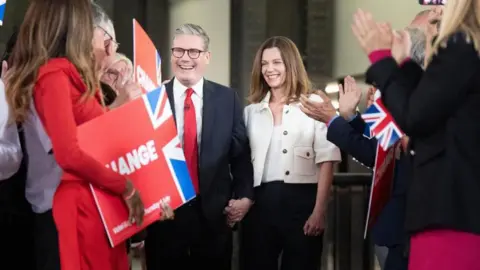 PA Media
PA MediaOn the face of it, the final result is straightforward: Sir Keir Starmer won, Rishi Sunak lost.
However, beneath the final vote count are other the stories which shaped the 2024 general election – from ousted ministers to insurgent smaller parties.
Here are the big winners and losers from a night that upended Westminster.
Liz Truss provides ‘Portillo moment’
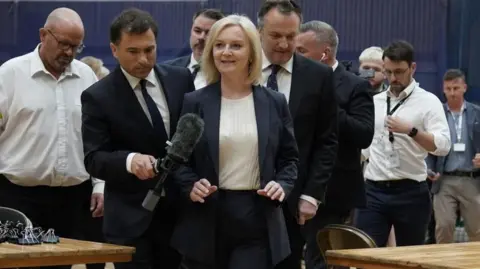 PA Media
PA MediaLiz Truss became prime minister 668 days ago. Then, within seven weeks, her own MPs had removed her.
On Friday morning, her constituents in South West Norfolk did the same, a fate not suffered by a former prime minister since 1935.
Ms Truss saw her majority of around 23,000 votes vanish and she was defeated by Labour. There were only 630 votes in it.
Douglas Alexander leads Labour onslaught on SNP
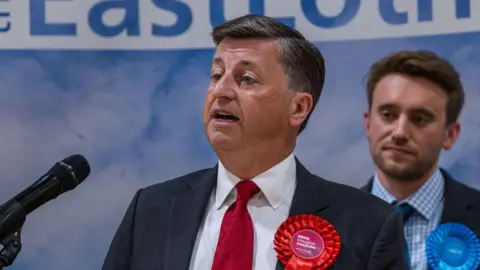 Alamy
AlamyFormer Labour minister Douglas Alexander is perhaps the most recognisable face among the candidates who demolished the SNP’s near-monopoly in Scotland.
He was elected back to the Commons after winning nearly 50% of the vote in Lothian East.
The SNP has lost around 40 of the seats it held before the election, prompting its leader John Swinney to say the party had “failed to convince” the people of Scotland on independence.
Penny Mordaunt’s No 10 ambitions upended
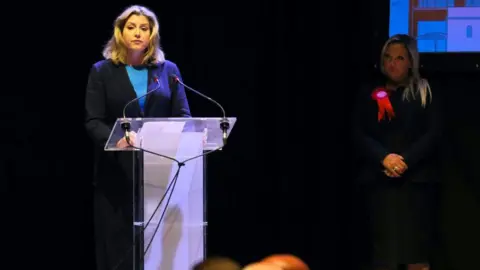 Getty Images
Getty ImagesPenny Mordaunt – the leader of the House of Commons and once a candidate to be prime minister – saw her majority of more than 15,000 in Portsmouth North overturned by Labour.
She had hoped her personal profile – generated in part by her ceremonial sword-wielding role during the Coronation of King Charles III – would mean her beating the national swing against her party, but Labour won narrowly.
It was widely expected she would play a big role in a future Tory leadership contest but she will now no longer be in the Commons.
Carla Denyer wins as Green Party pushes on
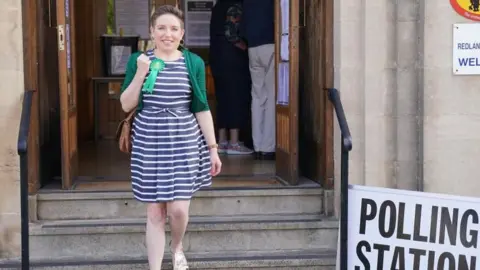 PA Media
PA MediaGreen Party co-leader Carla Denyer unseated Labour shadow cabinet member Thangham Debbonaire in Bristol Central.
Her party’s other leader Adrian Ramsey was also elected in the rural Waveney Valley seat
The Greens won four seats overall, their best ever performance at a general election, and was on course to win around two million votes.
Grant Shapps gone amid cabinet cull
 Shutterstock
ShutterstockDefence Secretary Grant Shapps held government posts for the majority of the Conservatives’ 14 years in power.
In the early hours of Friday, he saw a majority of more than 10,000 votes vanish and Labour take his Welwyn Hatfield seat, becoming the most senior cabinet minister to lose.
Other cabinet ministers removed from the Commons include: Veterans’ Minister Johnny Mercer, Education Secretary Gillian Keegan, Culture Secretary Lucy Frazer and Mr Sunak’s Chief Whip Simon Hart.
Nigel Farage finally gets to Westminster
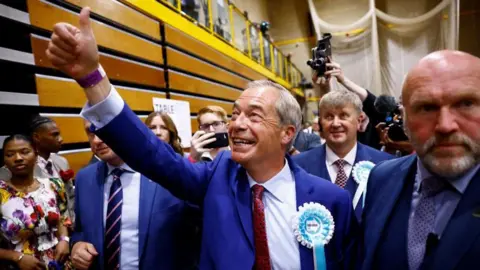 Reuters
ReutersIt was eighth time lucky for Nigel Farage, who was elected to the Commons for the first time, with a majority of more than 8,000 in Clacton.
His comeback to the frontline of politics transformed this election and saw Reform UK put on course to be the third largest party in the country by number of votes, with Mr Farage vowing to “stun” the electorate with Reform’s next moves.
The surge in his party’s fortunes since he joined the fray also saw ex-Tory MP Lee Anderson and Reform co-founder Richard Tice elected to the Commons.
Jacob Rees-Mogg among backbench exits
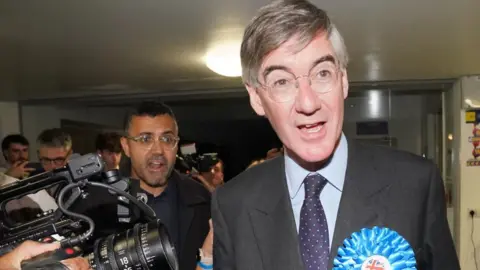 PA Media
PA MediaSir Jacob Rees-Mogg is perhaps the most recognisable face among influential former ministers and backbenchers to lose their seat.
The staunch Brexiteer went into the election with a majority of more than 16,000 votes in his North East Somerset and Hanham seat.
Before his result was announced, he told the BBC his party had taken its “core vote for granted”.
Jeremy Corbyn defies Labour on home turf
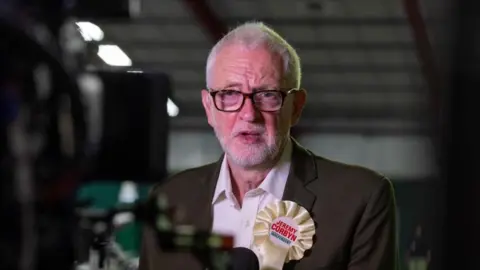 EPA
EPAOn a night when Sir Keir hoped to confirm a definitive break with the past for Labour, his predecessor had other ideas.
Jeremy Corbyn ran as an independent in Islington North – the constituency he has represented since 1983 – after being thrown out of Labour over his response to antisemitism.
Labour ran a candidate against him but Mr Corbyn’s local popularity meant he won in the north London seat by more than 7,000 votes.
Suella Braverman among high-profile survivors
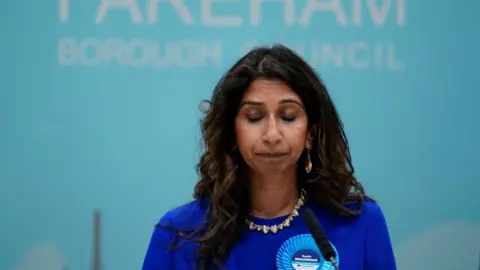 PA Media
PA MediaOne of the big questions arising from the election result is what type of Conservative Party emerges from the worst result in its modern history.
Former Home Secretary Suella Braverman is expected to be one of those seeking to shape where the party goes next, along with the likes of James Cleverly and Kemi Badenoch.
Speaking after her result was confirmed, she said: “I’m sorry that my party didn’t listen to you. The Conservative Party has let you down.”
Jonathan Ashworth loses amid Gaza protest votes
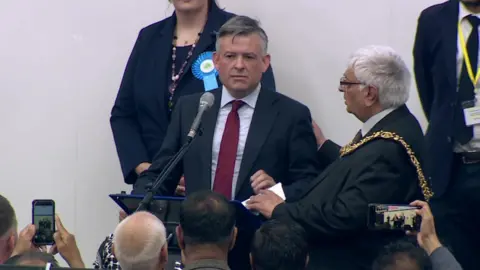
Jonathan Ashworth was almost certain to be a leading figure in the new Labour government.
Instead, the former shadow paymaster general and a key Starmer lieutenant lost his Leicester South constituency to independent candidate Shockat Adam.
The seat has a significant Muslim population and a large part of Mr Adam’s campaign focused on the situation in Gaza. Other Labour candidates saw their vote squeezed in areas with similar demographics.
Michelle O’Neill celebrates another Sinn Féin win
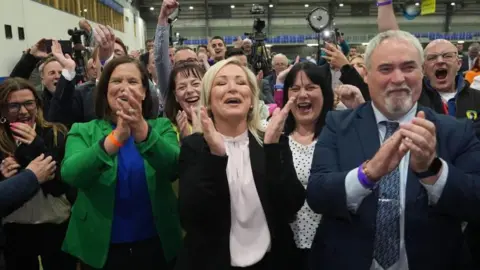 PA Media
PA MediaSinn Féin won more constituencies than any other party in Northern Ireland, in an election which saw the Democratic Unionist Party suffer.
It means the republican party – which does not take its seats in the Commons – has been the largest party in both the most recent Westminster and Stormont elections.
Northern Ireland’s First Minister Michelle O’Neill was seen celebrating alongside the party’s president Mary Lou McDonald as the final tallies were read out.
Ed Davey’s stunt strategy pays off
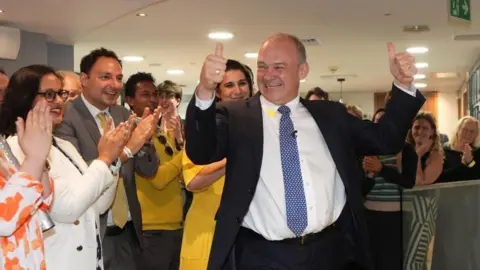 PA Media
PA MediaLiberal Democrat Sir Ed Davey’s decision to bungee jump, log flume and paddle board his way through the campaign might have split opinion, but it has paid dividends.
The party pulled off its target of becoming the third largest party in the Commons, with around 3.5m votes across the country.
Its gains predominantly came in the south east of England, where it targeted Conservative candidates.
Quirks and characters bring colour to proceedings
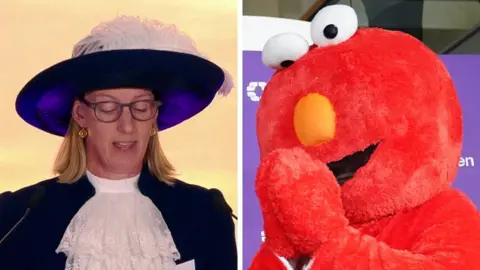 BBC/PA
BBC/PAFrom Count Binface at Rishi Sunak’s count, to the soon-to-be Prime Minister Sir Keir Starmer shaking hands with a life-sized Elmo – all via a Northumberland returning officer’s striking feathered traditional hat – there was plenty of colour on election night.
As ever, counts were full of novelty candidates and strange moments, all quirks of the UK’s democratic tradition.
Amid the tension and acute seriousness of general elections, they offer a splash of light relief to perk up people staying awake for results.

Related
Youth football teams hold minute’s silence for 10-year-old Poppy Atkinson
Youth football teams and grassroots clubs across the country have held a minute’s silence at the start of their games to commemorate a 10-year-old girl who di
Girl’s death sparks minute’s silence at football matches nationwide
10-year-old Poppy Atkinson was killed when she was struck by a car during a training session at Kendal Rugby Club in Cumbria. Clubs from Leeds to London
Liverpool fans’ Uefa claim can be heard in England, judge…
The high court, sitting in Liverpool, heard Uefa had relied upon the principle that English courts will not inquire into the legality of actions by foreign gove
Alan Shearer’s Premier League predictions including Manchester United vs Arsenal
Caption: Alan Shearer?s Premier League predictions credit: Getty / Metro After some impressive results for English sides in Europe the focus is













